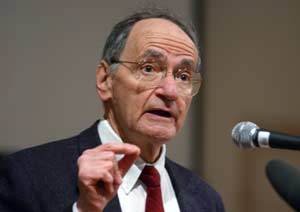Examining our relationships: New Year 5775
We are less than one month away from the coming of another new year, 5775. It is always core to Jewish belief that the way things are today, the problems and woes that beset us, do not have to remain the way they are.
Life, as we see it, is filled with challenges. But we have been given all the tools and power by our Creator, by God, to improve our circumstances and fill the “dark spots” of our existence with light and healing.
There are three specific areas of our lives that require our attention each year and they are:
- Our relationship with the world: This is Yom Hadin – The Day of Judgment. What is the state of society? Our nation? What are our ethics? What are the social ills and problems that need attention: the environment, social dysfunction, gaps between poor and rich, the strains of economic stagnation, the obligation of the nation to assist those abroad who suffer at the hands of tyrannies, terror and fear? How can we make the world a better place in our everyday lives?
- Our relationship with Judaism, the Jewish people, Israel, Belsize Square Synagogue: Who are we? What is my responsibility to the Jewish people? In the light of Israel’s recent incursion into Gaza, how do I feel? Why has there been a dramatic upsurge in anti-Semitic activity in the UK? What is my obligation to care for the State of Israel, the only Jewish state in the world? Is there a moral argument to be made for Israel’s search for security from terror and missiles, or am I just too uncomfortable with the concept of a Jewish state that has to fight in order to survive?What can I do – and why – to give time, resources and soul to the betterment of my synagogue, Belsize Square Synagogue? How do I want it to thrive? Do I care if it succeeds and why or why not? What is my relationship with God, with Judaism, Torah, Jewish law, the Mitzvot, ethics and morality? How do I relate to people of other faiths, in particular to Muslims and Christians? How am I different?
- Our relationship with ourselves and with each other: It is certainly a good time to evaluate the state of my own life. What are my strengths? What are the things I need to improve, to rid myself of? What can I change? Whom should I forgive and of whom should I ask forgiveness? Do I have the spiritual capacity to do teshuvah (repentance, literally return), really change my life for the better and expunge all those miserable and awful habits that prevent me from being my true self? How can I improve my relationship with my spouse, my parents, my siblings, my children, my friends? Am I happy? What is happiness and fulfilment for me? What is the state of my values and how does my Judaism help me meet these important matters in my life?
Reconciling the Challenges
The theme of my sermons will be an emphasis on the quality of love, the imperative commanded in our Torah: “To love God with all our hearts and souls” (Deut. 6:5) and “To love our neighbour” (Lev.19:18).
We will try to reconcile the challenges mentioned above with our love of Israel, our fellow Jew, of each other, our loved ones, of self, and ultimately our God, the Creator, the One who Reveals Torah – ethics – and the Redeemer of the people of Israel. Why and how should we love, and what and whom should we love?
I look forward to our coming together again and hope that in some way our time in synagogue will be uplifting, relevant to our lives, challenging, perhaps taxing to the soul, and allow us all to think, pray, express our gratitude, study and walk away recharged for the coming year, 5775.
Ella, Micah and I wish all of you and your loved ones a sweet, blessed, healthy and good New Year, filled with dreams, hopes, vision and renewed life.
L’shana tovah u’metukah – To a good and sweet year!
Rabbi Stuart Altshuler




